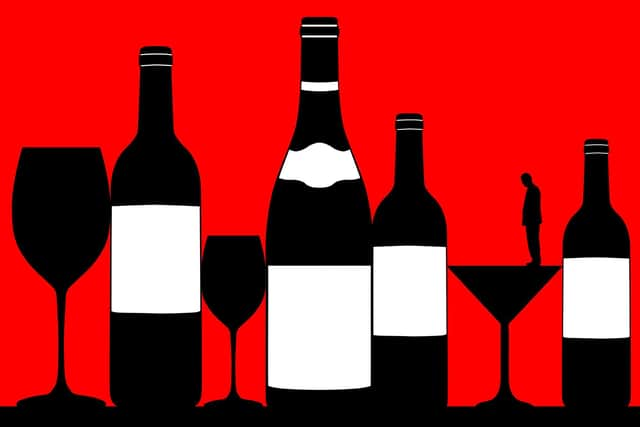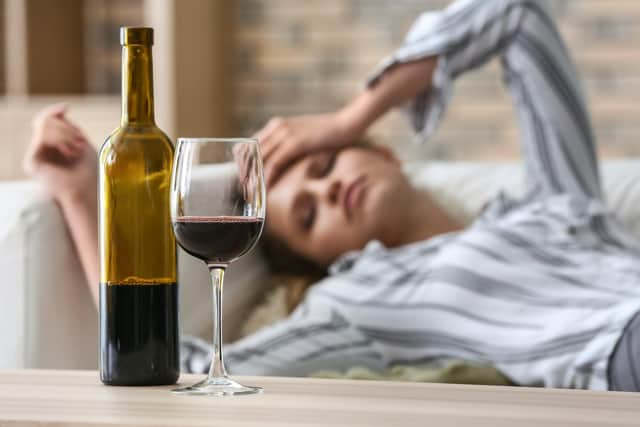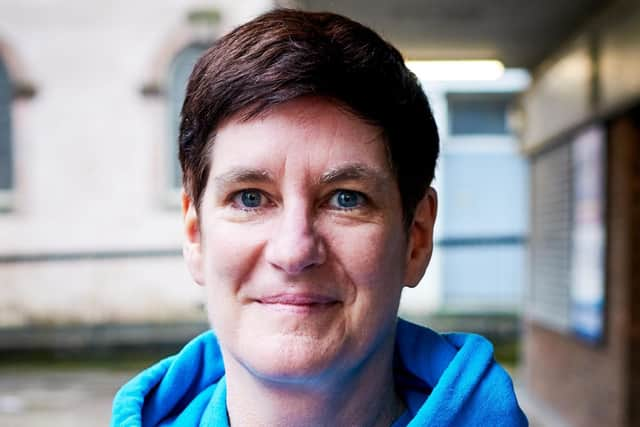Dani Garavelli: Where is the urgency around Scotland’s alcohol harm?
Mary was immunocompromised and they were terrified of giving her Covid. They still brought her groceries, but they left them outside her door. Then they’d park themselves outside her flat and talk to her through the window. She was fine, she told them. And, yes, of course, she was eating what they’d brought her.
But in June, Mary collapsed. An ambulance was called and the siblings entered her flat. What they saw there will live with them forever: her fridge full of rotten food, her carpet strewn with vodka bottles and smeared with bodily fluids. Mary was taken to hospital, but it was too late. She died the following day at the age of 65.
Advertisement
Hide AdAdvertisement
Hide AdNow Gary is experiencing that mix of emotions familiar to anyone who has lost a loved one to alcoholism: grief, guilt, anger “You ask yourself, ‘What more could we have done?’” he says. “We were terrified of putting her in danger. All the messaging was about keeping away. But she wasn’t eating and no-one knew how bad things had got. The worst of it is, in the last few months of her life, we didn’t even get to hug her.”


Not everyone drank more during lockdown. Indeed, some people used the lack of social interaction as an opportunity to give up. *James, an alcoholic, took his last drink shortly before Covid struck. But he believes lockdown made it easier for him to stay sober. “I was someone whose job involved attending functions,” he says. “Drink was all around me, but [the first] lockdown allowed me to undergo a nine-week detox.” By the time restrictions were lifted, he was ready to embrace a new way of living. “I try to avoid those functions now,” he says. “And when I do go, I drink non-alcoholic beer.”
Dr Alastair MacGilchrist, a liver specialist and chair of Scottish Health Action on Alcohol Problems (SHAAP), says there was a polarisation of alcohol consumption during the pandemic. Those who were light to moderate drinkers, drank the same or less, while, in general, those who were already heavy drinkers drank more.
“During the pandemic, the pattern of consumption was different,” MacGilchrist says. “It was all off-sales, uncontrolled drinking at home, drinking alone, where there are no measures, and no off button.”
Alcohol is a short-term stimulant, but a long-term depressant. Yet many people use it as a coping mechanism, self-medicating against anxiety. As their anxiety levels increased, so too did their consumption.


Before the pandemic, *Ian was already drinking two or three nights a week; once lockdown kicked in, it became part of his daily routine. “At first there was a bit of a holiday feel: we’re stuck in, let’s make the best of it,” he says. “We were scared for family members, but other than sit tight, there was nothing else to do, so boredom played a part.
“Then, after the first few weeks, things got harder. My eldest son has special needs, but he was getting no support. My wife and I were trying to work while home-schooling our six-year-old. Getting through the day was rewarded with a drink after we put the kids to bed. It was just what we did, like going for our daily walk. At my worst, I was drinking four beers and a few chasers a night.”
At the same time, the pandemic was making it more difficult for those with a drinking problem to access the country’s already under-capacity services. Organisations such as Alcoholics Anonymous did their best, taking their sessions online, but in-person recovery meetings stopped, and outreach support from Community Addiction Teams was reduced.
Advertisement
Hide AdAdvertisement
Hide AdIn the first year, people were less likely to go to their GPs or to A&E, partly because they were being told the NHS was stretched to breaking point dealing with Covid cases, but also because they were scared of catching the virus themselves.


MacGilchrist adds: “There was a reduction in inpatient services, too. Many of the alcohol addiction beds were diverted to Covid patients, and it took them a while to get back on board.”
The increase in consumption among heavy drinkers, combined with the pressure on services, had an immediate and shocking impact on the alcohol death figures.
In 2019 (after Minimum Unit Pricing had been in place for a year), the number of alcohol deaths dropped by a tenth. But in 2020, they rose by 17 per cent to 1,190, and in 2021 by a further 5 per cent to 1,245: the highest figure since 2008, and only 88 shy of the number of drug deaths.
The fact the alcohol death toll continued to rise in 2021, despite the easing of Covid restrictions, is particularly troubling. It has raised fears new patterns of harmful drinking, which had their roots in lockdown, may have become entrenched.


This is not true for everyone. In January 2021, Ian, who has stage 4 kidney disease, acknowledged the impact his alcohol consumption was having on his physical and mental health and stopped drinking, with support from his GP.
But in the last few months, I have spoken to many others who are worried their alcohol consumption has spiralled out of control.
*Katherine, a former music PR, told me she burst into tears when she heard the alcohol death figures earlier this month. “I thought, ‘What on Earth am I doing?’” she says. “I’m afraid I’m becoming a person I don’t want to be: that cliché of a middle-aged woman who is a bit of a wino.”
Advertisement
Hide AdAdvertisement
Hide AdKatherine moved from London to the Highlands in 2019 to care for her father, who had non-Hodgkin’s lymphoma. She began drinking more during lockdown as his health deteriorated and her isolation increased. In May 2020, he spent a month in hospital, before returning home to die.
More than a year on, still traumatised, Katherine is drinking a bottle and a half of wine a night. “Not every night,” she stresses. But she has put on three stone, and desperately wants to cut down. “I don’t want to put a strain on the NHS for something I can control. I want to be a better version of myself,” she says.
Two recently-published reports by the Institute of Alcohol Studies (IAS)/HealthLumen and the University of Sheffield explored the potential legacy of the way patterns of drinking changed during the pandemic.
